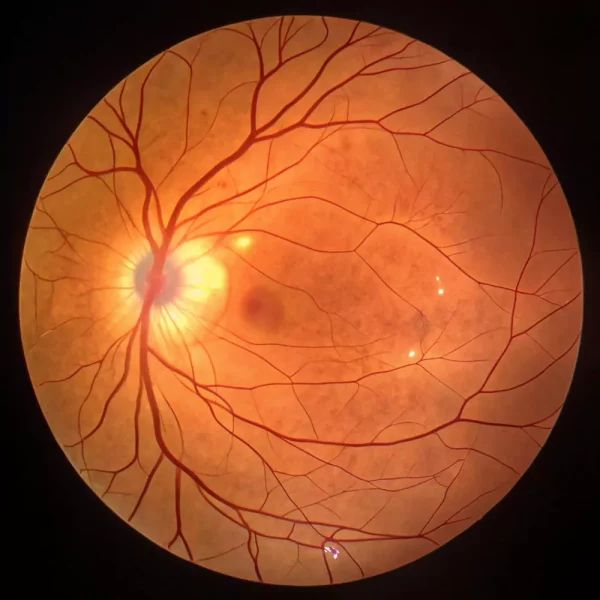Retina

The retina is a thin layer of light-sensitive tissue located at the back of the eye. It plays a crucial role in converting light into electrical signals, which are then transmitted to the brain to create visual images. Here are some key points about retinal health:
Function: The retina captures incoming light and sends signals to the brain through the optic nerve. It is essential for sharp central vision and overall visual clarity.
Common Conditions: Retinal disorders include diabetic retinopathy, retinal detachment, macular degeneration, and retinal vein occlusion. These can lead to vision loss if not diagnosed and treated early.
Symptoms: Warning signs of retinal problems include sudden vision loss, flashes of light, floaters, blurred or distorted vision, and a curtain-like shadow over the field of vision.
Diagnosis: Retinal issues are diagnosed through specialized tests such as optical coherence tomography (OCT), fundus photography, fluorescein angiography, and dilated retinal examination.
Treatment: Depending on the condition, treatment options include laser therapy, injections (anti-VEGF), vitrectomy surgery, or cryotherapy. Early intervention significantly improves outcomes.
Prevention and Monitoring: Regular eye exams are critical, especially for people with diabetes, high blood pressure, or a family history of retinal disease. Maintaining a healthy lifestyle and controlling systemic conditions help preserve retinal health.
